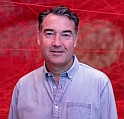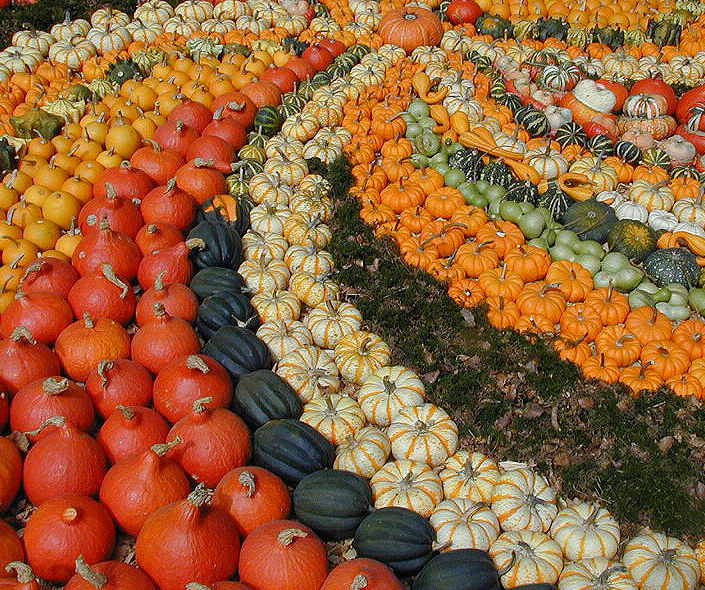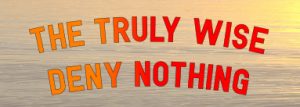Wise Nutrition Coaching Home Page
To Eat Fully Consciously Connects Us To The Miracle Of All Life
The diets that are optimal for our health are also the best for the environment and for the animals that we share the earth with.
 In 2014, just after my 60th birthday, I had abnormal red and white blood cell counts and an elevated bilirubin. Elevated bilirubin is a sign that the liver is not functioning as well as it should.
In 2014, just after my 60th birthday, I had abnormal red and white blood cell counts and an elevated bilirubin. Elevated bilirubin is a sign that the liver is not functioning as well as it should. Dr James Muecke believes that we should be eating more eggs, cheese, meat and dark chocolate to minimise diabetes, its associated blindness (diabetic retinopathy) and diabetic neuropathy.
Dr James Muecke believes that we should be eating more eggs, cheese, meat and dark chocolate to minimise diabetes, its associated blindness (diabetic retinopathy) and diabetic neuropathy. Frances Greger, at the age of 65, was confined to a wheelchair with crippling pain from angina. After 3 weeks, on a whole-food, plant-based diet, she was out of her wheelchair, walking 10 miles a day. She lived another 31 years.
Frances Greger, at the age of 65, was confined to a wheelchair with crippling pain from angina. After 3 weeks, on a whole-food, plant-based diet, she was out of her wheelchair, walking 10 miles a day. She lived another 31 years. My wife and kids would very likely not have a husband or father within the year. My blood pressure was 255/115, and I was on three medications to bring it down. My cholesterol and triglycerides were off the charts.
My wife and kids would very likely not have a husband or father within the year. My blood pressure was 255/115, and I was on three medications to bring it down. My cholesterol and triglycerides were off the charts.About Richard

Every year in January a school friend, John and I did a canyon trip in the Blue Mountains of NSW. At the same time, I visit my local doctor.
In 2014, just after my 60th birthday, the results came back with abnormal red and white blood cell counts and an elevated bilirubin. Elevated bilirubin is a sign that the liver is not functioning as well as it should.
It took 8 months to diagnose what the problem was. I have myeloma which is a cancer of the bone marrow that can no longer properly produce red and white blood cells. As a result, the immune system is compromised.
Even after I was diagnosed my doctor told me, “If you are going to get cancer, myeloma is one of the best to get.”.
I was booked into the regional myeloma clinic for treatment. I had pneumonia at the time he made that assessment which is what nearly killed me. Twice Ruth was told that I would not be coming home.
If he told me the truth, that is, “You are really sick. Go home and pack your bags and go to hospital this evening”, the outcome would be different.
In September 2014, I ended up in hospital for 9 weeks, including 7 weeks in intensive care. I was 68 kg (150 pounds) before admission – the same weight when I was at high school. I lost 21 kg (46 pound) in 4 weeks and lost 20 cm (8 in) in height. Myeloma also damages bones resulting in abnormal bone growth, bone deformity, crushed vertebrae and many broken ribs. I am still 15 kg lighter and 20 cm shorter than my pre-sickness days.
Even as a teenager, I was conscious of what I ate and have not eaten animal products for decades. I kept a skipping rope outside the back door and would do 1,000 skips a couple times a day when it was time to have a break. Now, I cannot do one.
Multiple myeloma is one of our most dreaded cancers. It’s a cancer of our antibody-producing plasma cells found in our bone marrow, and is considered one of our most intractable blood diseases. The precursor disease is called monoclonal gammopathy of undetermined significance (MGUS). Multiple myeloma is almost always preceded by MGUS. It has a prevalence of about 3% in the older white population.
MGUS does not have any symptoms. If it does progress to multiple myeloma, you only have about four years to live. That is the average life expectancy. One person (such as me) living a lot longer than expected raises the average life expectancy. The actual life expectancy is much less.
I was on a whole-food, plant-based diet for years and which was not sufficient to prevent me from progressing to multiple myeloma. There is evidence that myeloma is associated with agricultural and environmental toxins. One study shows that agricultural workers have a 4.5 times greater prevalence than other occupations. Yes, I do live in what appears to be a idyllic rural setting but two toxic aluminum smelters were located close by. The port of Newcastle is the world’s largest coal export terminal. Coal dust is a major source of pollution and I am located close to rail transport that transports coal in trains containing 80-90 uncovered wagons many times a day.
We need to find ways of treating MGUS early before it turns into cancer but such treatment does not exists. A whole-food, plant-based diet certainly helps but is no guarantee. The consumption of curcumin, the active ingredient in the spice turmeric has been associated with a decrease in the markers for multiple myeloma.
On the 20th July 2022, I was told that I was in immediate danger of “catastrophic bone marrow dysfuction”. Fortunately, that was resolved within the next 7 days, but it gives an indication of the precariousness of my situation.
I live with my wife Ruth in the Hunter Valley of NSW. We have a big vegetable garden, keep geese and chickens and have planted hundreds of trees in what was an empty paddock. Other interests include Rural Fire Service, music (play piano) and photography.
Purpose of Website
The website consists of over 140 web pages and with more than 140,000 words. Most are related to health and nutrition with others relating to the environment, agriculture, philosophy and psychology.
I have created a 97 minute video that explains how popular commentators as well as food manufacturers, researchers and government agencies ensure that corporate profits remain unaffected by a limited market for manufactured food products.
Check out the Inspiring Stories that show how quickly lives can be transformed on a Whole-Food, Plant-Based-Diet, with no added oils. These stories can be accessed by clicking on the Inspiration menu item.

Much publicity is given to the longevity of the people of Japan and Okinawa (an archipelago that stretches from southern Japan to Taiwan). However, it is vegan, Californian Seventh-day Adventists that have the longest lifespan and the highest levels of health on the planet.
In The Republic, Book 2, Plato describes a “rustic picture” of a way of life. The inhabitants “spend their days in houses which they have built for themselves; they make their own clothes and produce their own corn and wine. Their principal food is barley-meal and flour of wheat, and they drink in moderation. They live on the best of terms with each other, and take care not to have too many children. […] They will have salt and olives and cheese, vegetables and fruits, and chestnuts to roast at the fire.”
Plato continues that those “who want the comforts of life”, will create a state where “living in this way we shall have much greater need of physicians than before. […] Then a slice of our neighbours’ land will be wanted by us for pasture and tillage, and they will want a slice of ours.”
Some 500 years later, in Plutarch’s Morals. Vol. V, Plutarch writes at great length against the mistreatment, exploitation and killing of animals.
“But for the sake of some little mouthful of flesh, we deprive a soul of the sun and light, and of that proportion of life and time it had been born into the world to enjoy.”
Goal for Website
The majority of popular health advice offered on the internet advocate a very low-carbohydrate diet or ketogenic diet as a means to achieving optimal health.
Medical researchers, regulatory authorities and the media are influenced by funding sources that ensure that our society’s health outcomes are less than ideal.
Often their arguments are based on withholding information from documents that they quote, quoting articles that do not reference their point of view, basing arguments on irrelevant meta-analysis studies and performing studies that compare inappropriate cohorts that are designed to provide misleading results.
Dr James Muecke – Australian of the Year in 2020
Dr James Muecke is the Australian of the Year in 2020 which was awarded for his work as an eye- surgeon and his work in preventing blindness. He is trying to convince Australians to eat more meat, eggs and dairy. Australia is ranked number 2 in meat consumption, just behind United States but in front of Argentina, Uruguay, Brazil and New Zealand.
Muecke has stated that we need to “Declare war on type 2 diabetes and cut back on sugar” in order to reduce the incidence of blindness.
He believes that it is the introduction of sugary drinks and highly processed foods are the cause of diabetes – not a high-fat, high-protein diet as shown by numerous papers dating back to 1927. 1 ~ 2 ~ 3 ~ 4 ~ 5 ~ 6 ~ 7 ~ 8 ~ 9 ~ 10 ~ 11 ~ 12
Muecke believes that we should be eating more eggs, cheese, meat and dark chocolate to minimise diabetes, and its associated blindness caused by diabetic retinopathy and diabetic neuropathy. Peripheral diabetic neuropathy is nerve damage of the limbs that is caused by diabetes. 50% of adults with type 2 diabetes have peripheral neuropathy. It can result in pain, numbness and an increase in sensitivity. Diabetes account for more than 80% of amputations.
Diabetic retinopathy is a complication of diabetes caused by the blood vessels in the retina becoming damaged leading to loss of vision and eventually blindness.
It is difficult to challenge such an esteemed ophthalmologist. However the cause of diabetes has been known at least from the 1920s – that is, high-fat diets. It took another 70 years to discover the mechanism. If you type “intramyocellular lipids diabetes” into a Google Scholar search, you will receive hundreds of search results that documents the cause of type 2 diabetes. “Intramyocellular lipids” refers to fats inside muscle cells.
According to the Australian Bureau of Statistics, the level of sugar consumption in Australia is decreasing.
Dr Muecke was interviewed by Keith Wheeler for a FarmOnline National article. Wheeler summed up his article with, the quote:
Muecke refers to a 2019 article in the Annals of Internal Medicine, Unprocessed Red Meat and Processed Meat Consumption: Dietary Guideline Recommendations From the Nutritional Recommendations (NutriRECS) Consortium 13 to support his beliefs.
The publications produced by the NutriRECS organisation are concerned with proving that red meat consumption is healthy – or at least not detrimental.
Bradley Johnston is the director and co-founder of NutriRECS, and is an Associate Professor with the Departments of Nutrition & Statistics, Texas A&M University (formerly Agricultural and Mechanical College).
Grant money came from AgriLife Research, a part of Texas A&M University that is partially funded by the beef industry. According to Patrick Stover, vice-chancellor and dean of AgriLife, the Texas research agency received more than $2 million in funding from the beef industry in 2019 alone. Stover was also a co-author on the Annals of Internal Medicine study with Johnston, along with an international team of researchers. Stover has since hired Johnston as an associate professor of community health and epidemiology at Texas A&M 15.Dr Muecke is providing advice that people dearly wish to believe but is detrimental.
What is on the web site
As well as the web pages, the web site has a number of supporting material including ebooks, a published book and video.
- A published book Low-carbohydate Mania: The Fantasies, Delusions and Myths that dispels the myths that we have been following expert medical advice for the past 40 years and we are unhealthier than ever. They declare that the idea that saturated fats and cholesterol cause heart disease is the greatest scientific deception of our times and that a low-carbohydrate, high-fat diet is essential for our well-being.
- ebook: Why Eggs are Not OK
- ebook: Low-carbohydrate Diets – The Myths
- ebook: Dairy and Wheat – What you did not know
- ebook: Carbohydrates DO NOT cause diabetes – 17 page book that demonstrates that the cause of Type 2 diabetes has been known since at least the early 1920s. It was another 70 years before the physiological reason was discovered.
- ebook: Truth and Belief which examines how Truth and Belief can easily become distorted. It examines the Secret Life of Water by Masaru Emoto, the actual beliefs of Rene Descartes instead of his mis-interpreted views of popular commentators such as Marianne Williamson and shows that moderation is indeed a fatal thing (Oscar Wilde). The origin of the popular myths such as the Butterfly Effect is fascinating. (No – a butterfly in Brazil does not cause a tornado in Texas despite its charming alliteration.)
- ebook: Dietary Deceptions. A 160 page book that examines the contention of a number of popular commentors and medical researchers that state we should be “eating more eggs, cheese, meat and dark chocolate to minimise diabetes and its associated blindness”. It also examines the flawed methodology of US News Best Diets. Each year the organization releases its annual report. In 2022 it evaluated 40 diet plans “to help millions of Americans make food and nutrition-related resolutions and achieve their health goals”.
- A 97 minute Vimeo video along with a more detailed accompanying ebook (complete with references) that examines how the food industry, medical researchers, regulatory authorities and the media collude to ensure that corporate profits can continue to increase. It is much more powerful to hear and see how these bodies distort the truth than to read it in a book.
This video deserves to be much more widely distributed so those who distort the truth are held to account for their manipulations.
I could be completely delusional but I think the movie is really incredible, unbelievable and shocking as it shows the degree of manipulation that even highly qualified and esteemed researchers will descend to protect their funding arrangements.
As Huang Po, the 9th century Zen monk stated,
The wise reject what they think, not what they see.
Last updated on Monday 15 January 2024 at 22:22 by administrators
Footnotes
- Sweeney, J. S. (1927). Dietary Factors that Influence the Dextrose Tolerance Test. Archives of Internal Medicine, 40(6), 818–830.
- Sweeney, J. S. (1928). A comparison of the effects of general diets and of standardized diets on tolerance for dextrose. Archives of Internal Medicine, 42(6), 872–876
- Gale, E. A. (2013) Commentary: The hedgehog and the fox: Sir Harold Himsworth (1905–93). International Journal of Epidemiology. 12 (6), 1602–1607
- Black, D. & Gray, J. (1995) Sir Harold Percival Himsworth, K. C. B., 19 May 1905 – 1 November 1993.
- Himsworth, H. P. (1935) Diet and the incidence of diabetes mellitus. Clinical Science. 2117–148.
- Himsworth, H. P. (1934) Dietetic factors influencing the glucose tolerance and the activity of insulin. The Journal of Physiology. 29–48.
- Himsworth, H. & Marshall, E. (1935) The diet of diabetics prior to the onset of the disease. Clinical Science. 295–115.
- Bachmann, O. P., Dahl, D. B., Brechtel, K., Haap, M., Maier, T., Loviscach, M., … Jacob, S. (2001). Effects of Intravenous and Dietary Lipid Challenge on Intramyocellular Lipid Content and the Relation With Insulin Sensitivity in Humans. Diabetes, 50(13), 2579–2584.
- Jacob, S., Machann, J., Rett, K., Brechtel, K., Volk, A., Renn, W., … Häring, H.-U. (1999). Association of Increased Intramyocellular Lipid Content With Insulin Resistance in Lean Nondiabetic Offspring of Type 2 Diabetic Subjects. Diabetes, 48(21), 1113–1119.
- Krssak, M., Falk Petersen, K., Dresner, A., DiPietro, L., Vogel, S. M., Rothman, D. L., … Roden, M. (1999). Intramyocellular lipid concentrations are correlated with insulin sensitivity in humans: A 1H NMR spectroscopy study. Diabetologia, 42(1), 113–116.
- Roden, M., Krssak, M., Stingl, H., Gruber, S., Hofer, A., Furnsinn, C., … Waldhausl, W. (1999). Rapid impairment of skeletal muscle glucose transport/phosphorylation by free fatty acids in humans. Diabetes, 48(2), 358–364.
- Roden, M., Price, T. B., Perseghin, G., Petersen, K. F., Rothman, D. L., Cline, G. W., & Shulman, G. I. (1996). Mechanism of free fatty acid-induced insulin resistance in humans. Journal of Clinical Investigation, 97(12), 2859–2865.
- Johnston, B. C. et al. (2019) Unprocessed red meat and processed meat consumption: dietary guideline recommendations from the Nutritional Recommendations (NutriRECS) Consortium. Annals of internal medicine. 171 (10), 756–764.
- Oreskes, N. (2020) So Is It Okay to Eat More Red and Processed Meat? Scientific American. 322 (2), 70.
- Mole, B. (2020) Researcher promoting red meat, sugar failed to disclose industry ties—again | Ars Technica









I do not understand how the Australia of the Year, can tell us that we should be eating more eggs, cheese, meat and dark chocolate to minimise diabetes, its associated blindness (diabetic retinopathy) and diabetic neuropathy. This is the cause, not the cure.
This video deserves to be much more widely distributed so those who distort the truth are held to account for their manipulations.